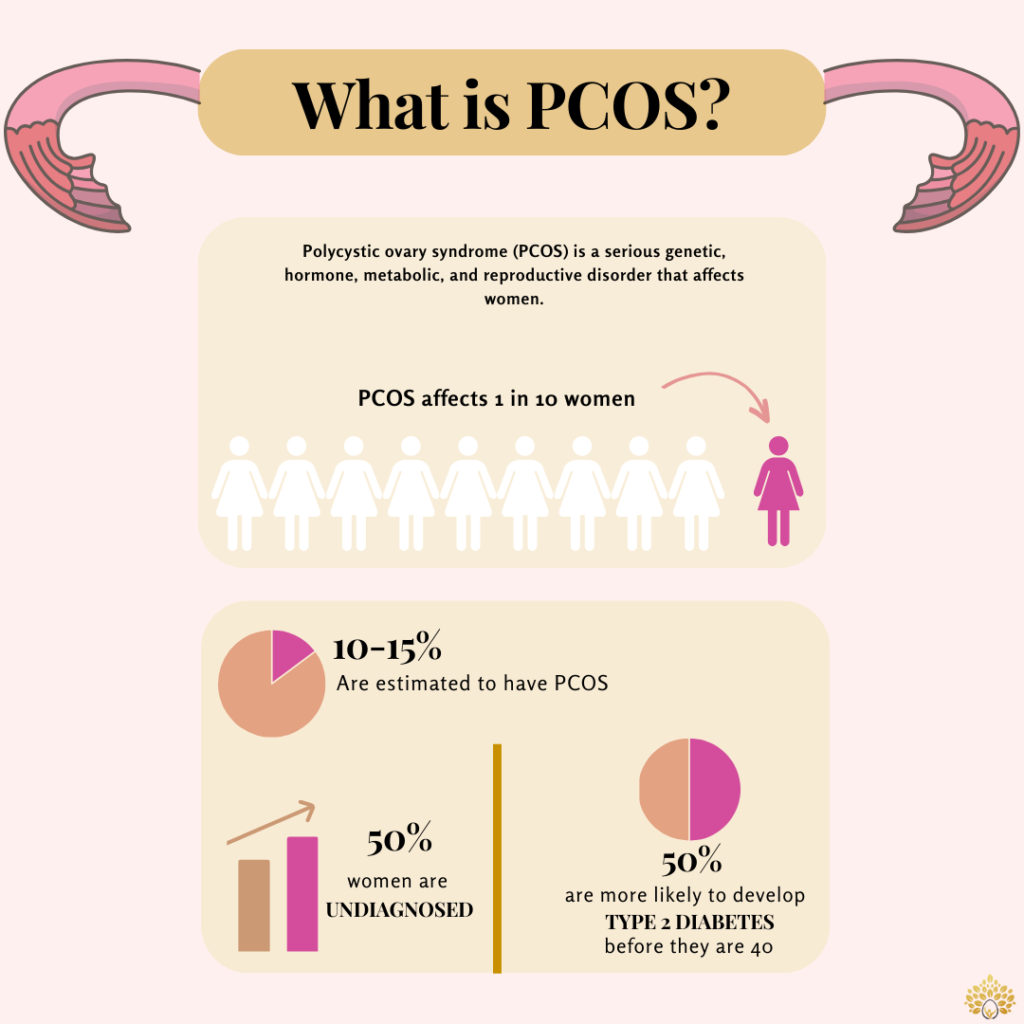Imagine a health condition affecting millions of women worldwide, yet shrouded in mystery for far too long. That’s the enigma of Polycystic Ovary Syndrome, or PCOS, a complex hormonal disorder that touches the lives of countless women, often without them even realizing it.
In today’s blog, we embark on a journey to demystify PCOS. We’ll delve deep into its intricacies, exploring its causes, symptoms, and most importantly, the path to managing and thriving with this condition. Whether you’ve been recently diagnosed, suspect you may have PCOS, or simply want to better understand this prevalent but often misunderstood condition, this post is for you.
PCOS can present a range of challenges, from irregular menstrual cycles and fertility issues to metabolic and hormonal imbalances. Yet, it’s essential to remember that PCOS doesn’t define you. With knowledge, support, and the right strategies, you can regain control of your health and well-being.
Polycystic Ovary Syndrome (PCOS) is a common yet often misunderstood condition that affects many women worldwide. Characterized by hormonal imbalances, it can impact various aspects of health and well-being. To shed light on this complex condition, here are 10 crucial things you should know about PCOS:
-
Hormonal Imbalance: PCOS is primarily characterized by hormonal imbalances, including elevated levels of androgens (male hormones) and insulin resistance. These imbalances can lead to a range of symptoms.
-
Irregular Periods: One of the most common signs of PCOS is irregular menstrual cycles. Women with PCOS may have infrequent, heavy, or prolonged periods.
-
Ovulation Difficulties: PCOS can interfere with ovulation, making it challenging for women to conceive. Fertility issues are common, but many women with PCOS do go on to have healthy pregnancies with medical assistance.
-
Polycystic Ovaries: The term “polycystic” refers to the appearance of the ovaries in PCOS. They may contain numerous small follicles, but not all women with PCOS have this feature.
-
Metabolic Effects: PCOS is associated with insulin resistance, which can lead to weight gain and an increased risk of type 2 diabetes. Managing insulin levels is crucial for overall health.
-
Hirsutism and Acne: Elevated androgen levels can cause hirsutism (excessive hair growth) and acne in some women with PCOS. These symptoms can be distressing but are treatable.
-
Emotional Impact: PCOS can take a toll on mental health. Coping with the physical symptoms and fertility challenges can lead to stress, anxiety, and depression. Seeking emotional support is important.
-
Lifestyle Changes: Lifestyle modifications, including a balanced diet, regular exercise, and stress management, can significantly improve PCOS symptoms and overall health.
-
Medical Treatment: Treatment options for PCOS may include hormonal birth control to regulate periods, medications to manage insulin resistance, and fertility treatments if conception is desired.
-
Individualized Care: PCOS affects each person differently. It’s essential to work with healthcare professionals who can tailor a treatment plan to your unique needs and goals.
Understanding PCOS is the first step in managing it effectively. If you or someone you know is dealing with PCOS, know that there is hope and support available. By addressing the condition holistically, you can take control of your health and lead a fulfilling life. Stay tuned for more in-depth insights into PCOS and how to thrive despite its challenges.

